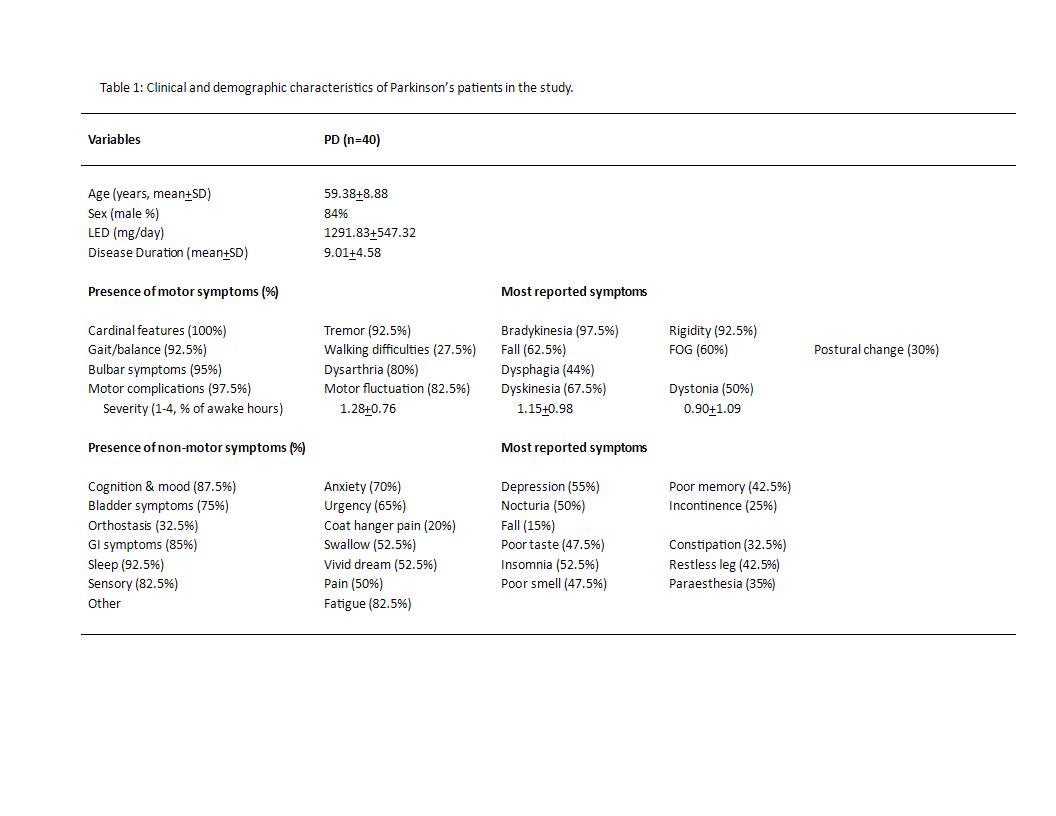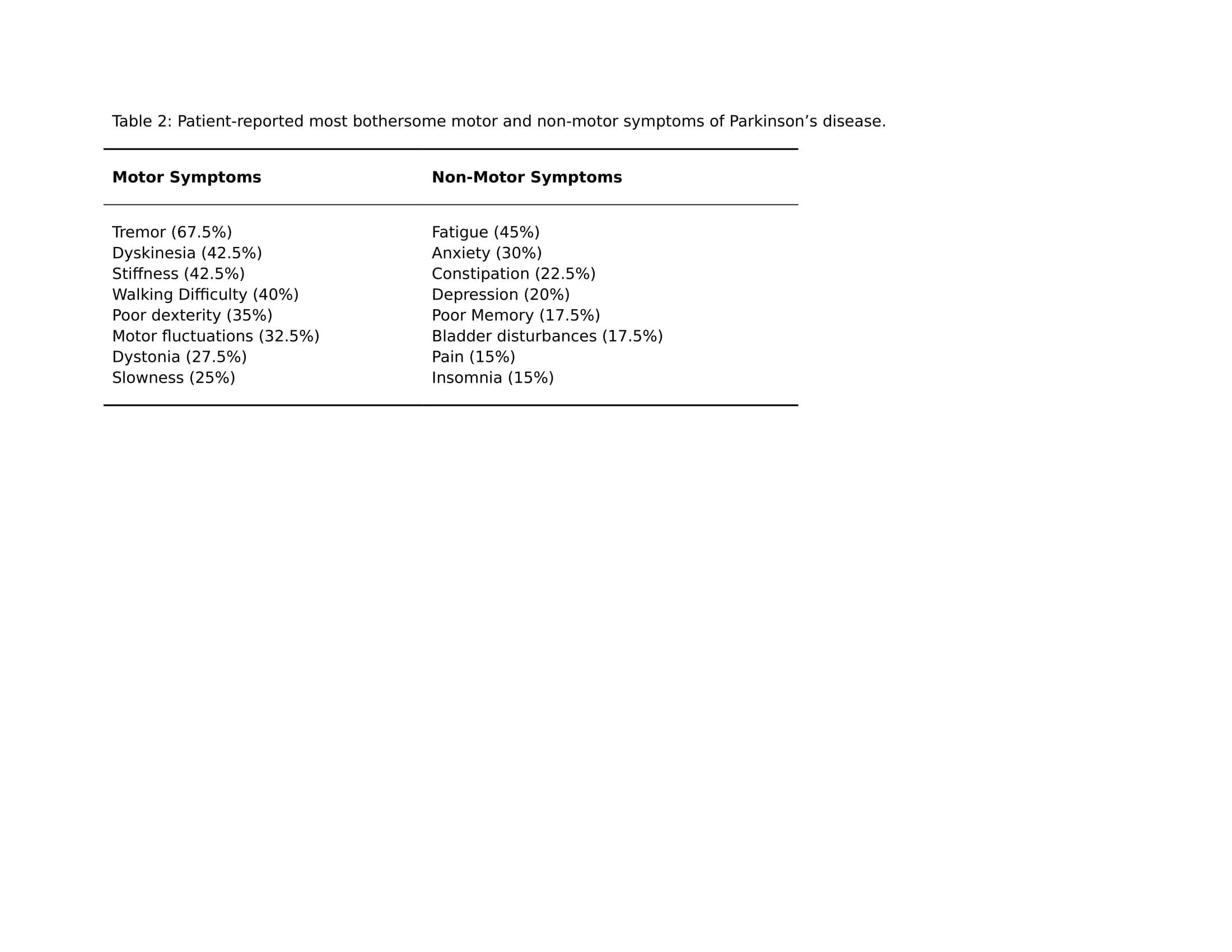Session Information
Date: Saturday, October 6, 2018
Session Title: Surgical Therapy: Parkinson's Disease
Session Time: 1:45pm-3:15pm
Location: Hall 3FG
Objective: To develop a computer application with responsive design to incorporate Parkinson’s Disease (PD) patients’ expectations for Deep Brain Stimulation (DBS) surgery and present them with evidence of the likelihood of improvement tailored to their symptom profile. Such a tool helps patients with informed decision making and serves as an education tool.
Background: DBS is an effective treatment for tremor and other levodopa-responsive motor symptoms of PD and medication-induced motor complications. However, DBS is less effective for managing axial symptoms (gait, balance, speech etc.) and non-motor symptoms (NMS). The axial symptoms and NMS are usually more disabling. Clinicians tend to focus upon motor symptoms to guide patient selection and outcomes for DBS surgery; however, we lack a tool that incorporates patient perceptions of function and quality of life into this process. Therefore, we have developed a patient-centered decision-making tool designed to provide easy to understand and up-to-date information that outlines the benefits, risks, and options pertaining to DBS surgery.
Methods: PD patients aged 18-70 were referred to the Movement Disorders Program at the University of Alberta for DBS assessment. Patients were given a short questionnaire to assess their knowledge and expectations about DBS and subsequently were introduced to a computer application that allowed them to input their individual PD symptoms. Patients were able to grade which symptoms they wanted to see improvement in after DBS. The application then provided relevant information about the likelihood of improvement based on the most updated literature. Post-application assessments evaluated if patients desired to explore DBS further and if their DBS knowledge improved.
Results: Forty patients were recruited. Demographic data and symptoms are summarized in [table1]. Most bothersome motor and non-motor symptoms are summarized in [table2]. All patients found the application helpful as an educational tool. Only one patient decided not to proceed with further assessment since “depression will not improve”. There was a significant improvement in their knowledge regarding the likelihood of which symptoms tend to improve with DBS.
Conclusions: The application serves as a tool for shared decision making. It will help patients make an informed decision about whether to proceed with DBS and promote further discussion with DBS clinicians.
To cite this abstract in AMA style:
S. Joza, K. Yen, F. Ba, J. Miyasaki. A Patient-Centered Decision-Making Algorithm for Deep Brain Stimulation Surgery in Parkinson’s Disease [abstract]. Mov Disord. 2018; 33 (suppl 2). https://www.mdsabstracts.org/abstract/a-patient-centered-decision-making-algorithm-for-deep-brain-stimulation-surgery-in-parkinsons-disease/. Accessed February 15, 2026.« Back to 2018 International Congress
MDS Abstracts - https://www.mdsabstracts.org/abstract/a-patient-centered-decision-making-algorithm-for-deep-brain-stimulation-surgery-in-parkinsons-disease/


